SAFF Championship 2011:Coaches Profile
The SAFF Cup brings together eight SAFF nations in a tournament held every two years, to ascertain regional supremacy in South Asia. India are to host the 2011 iteration of the tournament and they are also credited with being the most successful team at the competition.
Behind every successful team, it is of course the coach who makes all the game-changing decisions and hence we take a look at the men at helm of the SAFF nations who look to challenge defending champions India for the 2011 crown.
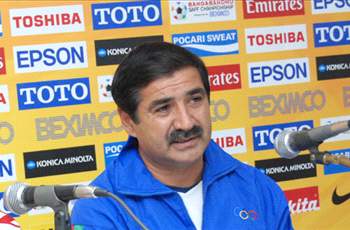 |
Mohammad Yousef Kargar
Afghanistan
Age - 49 |
The man who is in charge of the Afghanistan national team who are ranked currently 184 in the world according to FIFA, was actually a talented skiier and comes from a wealthy family who had set up the first ski resort in Afghanistan.
He became national champion at the relatively young age of 16 but the ongoing Russian invasion meant we could never know how good he actually was as he failed to go to the Winter Olympics.
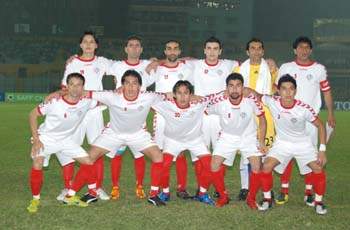 Being a multi-talented man, Kargar also represented the Afghan National Football Team from 1976-1984. With the Taliban Regime ending, he was the Assistant Manager of the Football Team from 2002, mainly in charge of the youth system and finally it was in 2008, he was chosen to manage the Afghan National Team. Being a multi-talented man, Kargar also represented the Afghan National Football Team from 1976-1984. With the Taliban Regime ending, he was the Assistant Manager of the Football Team from 2002, mainly in charge of the youth system and finally it was in 2008, he was chosen to manage the Afghan National Team.
Besides football, Kargar still maintains his keen interest in skiing as he has rebuild his family resort, which was destroyed during the Russian invasion and he trains future skiiers with the dream of Afghanistan being represented in the Winter Olympics, even though he may be too old for it. |
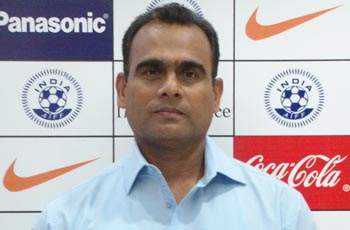 |
Savio Medeira
India
Age - 46 |
Savio Medeira was recently appointed as Head Coach of India having served as Assistant Coach under both Bob Houghton and Armando Colaco from 2008.
Starting his career as India coach with a draw against Malaysia, his first win came in the second match itself when they played the same opposition in Kolkata. Savio had a long and successful career with Salgaocar from 1983-2000 where he played as a midfielder and had won the National Football League in 1998.
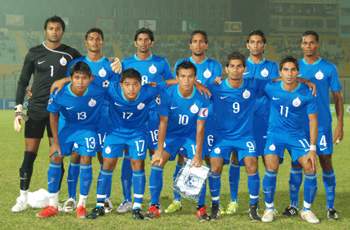 After retiring from football, he was appointed as coach of Salgaocar from 2001 after being an assistant coach for a year. His time at the club was mixed. They did win the Durand Cup in 2003 and also finished runners up in 2002-2003 NFL just behind East Bengal. however they were relegated twice under his reign. After retiring from football, he was appointed as coach of Salgaocar from 2001 after being an assistant coach for a year. His time at the club was mixed. They did win the Durand Cup in 2003 and also finished runners up in 2002-2003 NFL just behind East Bengal. however they were relegated twice under his reign.
This would be the first India's first competition under Savio, and Savio will look to help India on to defend their crown as SAFF champions at their own backyard. |
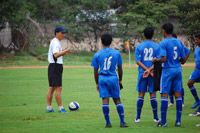 |
Jang Jung
Sri Lanka
Age - 47 |
Jang Jung, who took charge of the Sri Lanka National Football Team in 2007 was a defender during his playing career and had also won four caps for the South Korean National team.
He started representing Ajou University Youth team and quickly moved to Lucky Goldstar Hwangso.
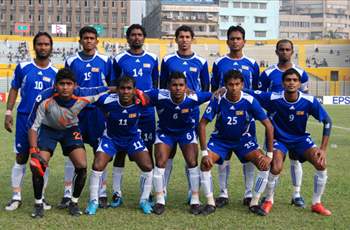 He also played for Perak FC, Singapore Lions and retired at Geyland United FC, where he immediately took over as coach of the team. He then moved to Balestier Khalsa, another team in Singapore's S-League as Coach and finally spending a year from 2006 as coach of Sri Lanka's U23 team he was appointed head coach of the senior Sri Lankan team. He also played for Perak FC, Singapore Lions and retired at Geyland United FC, where he immediately took over as coach of the team. He then moved to Balestier Khalsa, another team in Singapore's S-League as Coach and finally spending a year from 2006 as coach of Sri Lanka's U23 team he was appointed head coach of the senior Sri Lankan team. |
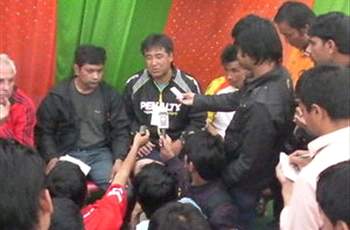 |
Hiroaki Matsuyama
Bhutan
Age - 44 |
Matuyama took over as head coach of the Bhutan national team, this year after Koji Gyotuku reinquished control.
As a player he represented a clutch of Japanese clubs, with only a mere appearances in J-League, playing as a midfielder. He played for the likes of Furukawa Electric, Fujita, Bellmare Hiratsuka, Tosu Futures and Consadole Sapporo among others in a short playing career of about six years. However he never represented the Japan National Team.
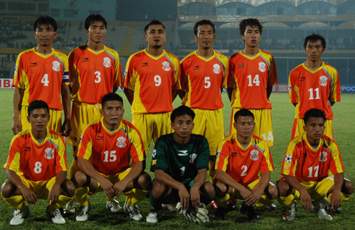 His only prior managerial experience before the Bhutan job was when he took over as Head Coach of Oita Trinita, a team in J-league Division 2 in 2009 for a short span before being removed. He was the manager of Vissel Kobe Reserves in 2004 and seemingly worked as an interpreter as well. His only prior managerial experience before the Bhutan job was when he took over as Head Coach of Oita Trinita, a team in J-league Division 2 in 2009 for a short span before being removed. He was the manager of Vissel Kobe Reserves in 2004 and seemingly worked as an interpreter as well. |
Nikola Ilievski
Bangladesh
Age - 56 |
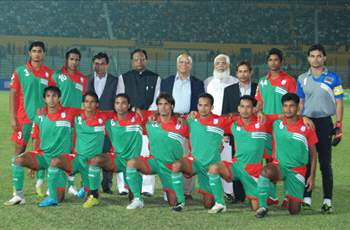 Ilievski is from the Republic of Macedonia born in Skopje which belonged to the former Yugoslovia under the Soviet Federation. Ilievski is from the Republic of Macedonia born in Skopje which belonged to the former Yugoslovia under the Soviet Federation.
He had a distinguished playing career from 1974-88 representing a clutch of clubs from the former Yugoslovia which includes FK Ohrid, FK Vardar, FK Rabotnicki, FK Pristina among others and also Kastoria FC from Greece.
After finishing his playing career he obtained a coaching degree from the University of Belgrade. Just like his playing career he coached numerous teams, the highlights of which include coaching Macedonia from 2002-03. His most successful spell included leading FK Pobeda to the Macedonian Cup in 2001-02 and first division in 2003-04. He also led NK CM Celje to the Slovenian Cup in 2005-06. He replaced Gjore Jovanoski as coach of Bangladesh in June 2011. |
Istvan Urbanyi
Maldives
Age - 44 |
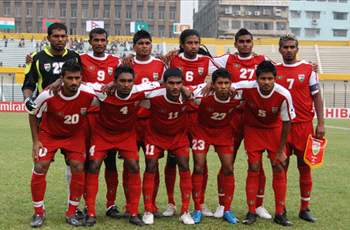 Currently in his second stint as coach of the Maldives National Team from October 2011, during his playing career he played both as a defender and a midfielder and represented the Hungary National Team. Currently in his second stint as coach of the Maldives National Team from October 2011, during his playing career he played both as a defender and a midfielder and represented the Hungary National Team.
In his long 18 year playing career, he played for a host of clubs in Hungary with the most notable being BP Honved and Gyori ETO among others.
His coaching career began in 2002 with BKV Elore in Hungary and Ujpest FC before taking charge of Maldives in 2009-10. He was reappointed after a short stint with Kecskemeti CE. With Maldives being last edition's losing finalists and the second seed behind India this year, Urbanyi will look to win the title with Maldives this time around. |
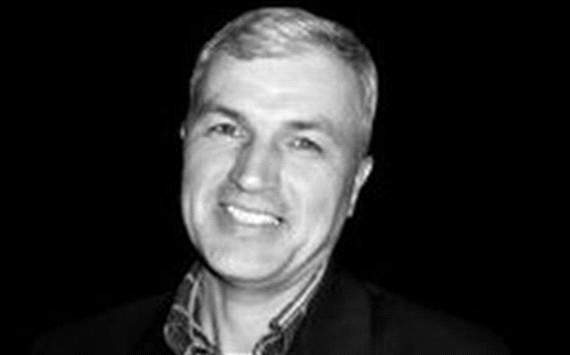 |
Zavisa Milosavljević
Pakistan |
Milosavljević took charge just in November, 2011 replacing Tariq Lufti, who was a stop gap after Graham Roberts was sacked. He has his task cut out since Pakistan head on to compete in the SAFF Championship early December.
He possesses a Master Degree in Physical Education and was also a P.E Professor. He also has an A category Coaching license.
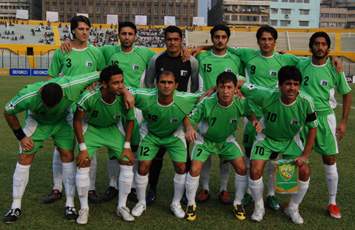 His previous stint was coaching the Lesotho National Team with whom he won two, drew six and lost nine. He was born in Serbia and he had previous experience in coaching the U-16, U-19 and U-23 Serbian National Football Team. His previous stint was coaching the Lesotho National Team with whom he won two, drew six and lost nine. He was born in Serbia and he had previous experience in coaching the U-16, U-19 and U-23 Serbian National Football Team.
On speaking about his vision regarding the Pakistan football team he mentioned "target, analysis, vision, action and control” as what he looks to achieve. |
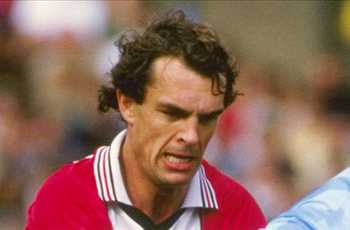 |
Graham Roberts
Nepal
Age - 52 |
Arguably the most high profile coach among all, Roberts was born in Southampton, and played as a defender representing a clutch of big clubs including the likes of Chelsea, Rangers and Tottenham Hotspur among others in a sparkling career that stretched 21 years.
His honours include winning the FA Cup with Tottenham in 1981 and 1982 and also the UEFA Cup in 1984. With Rangers he won the Scottish League in the first season itself along with the League Cup twice in 1987 and 1988. He also won the second division while representing Chelsea in 1988-89. He also won 6 caps for the England National Team.
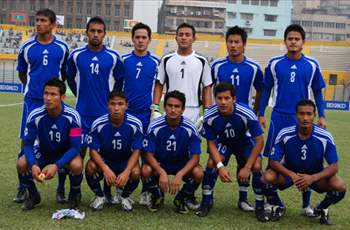 When he hanged up his boots as a player, he took over as manager of Clyde in the Scottish League. While playing for Yeovil Town, he was also a manager there. However he was dismissed rather controversially by Clyde,on the allegation that he made racist remarks but which was later found out as wholly exaggerated or possibly not true at all. When he hanged up his boots as a player, he took over as manager of Clyde in the Scottish League. While playing for Yeovil Town, he was also a manager there. However he was dismissed rather controversially by Clyde,on the allegation that he made racist remarks but which was later found out as wholly exaggerated or possibly not true at all.
Before taking over Nepal he had a short stint as Head Coach of Pakistan but was removed in March 2011, being there for only a year. |
 Being a multi-talented man, Kargar also represented the Afghan National Football Team from 1976-1984. With the Taliban Regime ending, he was the Assistant Manager of the Football Team from 2002, mainly in charge of the youth system and finally it was in 2008, he was chosen to manage the Afghan National Team.
Being a multi-talented man, Kargar also represented the Afghan National Football Team from 1976-1984. With the Taliban Regime ending, he was the Assistant Manager of the Football Team from 2002, mainly in charge of the youth system and finally it was in 2008, he was chosen to manage the Afghan National Team. After retiring from football, he was appointed as coach of Salgaocar from 2001 after being an assistant coach for a year. His time at the club was mixed. They did win the Durand Cup in 2003 and also finished runners up in 2002-2003 NFL just behind East Bengal. however they were relegated twice under his reign.
After retiring from football, he was appointed as coach of Salgaocar from 2001 after being an assistant coach for a year. His time at the club was mixed. They did win the Durand Cup in 2003 and also finished runners up in 2002-2003 NFL just behind East Bengal. however they were relegated twice under his reign. He also played for Perak FC, Singapore Lions and retired at Geyland United FC, where he immediately took over as coach of the team. He then moved to Balestier Khalsa, another team in Singapore's S-League as Coach and finally spending a year from 2006 as coach of Sri Lanka's U23 team he was appointed head coach of the senior Sri Lankan team.
He also played for Perak FC, Singapore Lions and retired at Geyland United FC, where he immediately took over as coach of the team. He then moved to Balestier Khalsa, another team in Singapore's S-League as Coach and finally spending a year from 2006 as coach of Sri Lanka's U23 team he was appointed head coach of the senior Sri Lankan team. His only prior managerial experience before the Bhutan job was when he took over as Head Coach of Oita Trinita, a team in J-league Division 2 in 2009 for a short span before being removed. He was the manager of Vissel Kobe Reserves in 2004 and seemingly worked as an interpreter as well.
His only prior managerial experience before the Bhutan job was when he took over as Head Coach of Oita Trinita, a team in J-league Division 2 in 2009 for a short span before being removed. He was the manager of Vissel Kobe Reserves in 2004 and seemingly worked as an interpreter as well. Ilievski is from the Republic of Macedonia born in Skopje which belonged to the former Yugoslovia under the Soviet Federation.
Ilievski is from the Republic of Macedonia born in Skopje which belonged to the former Yugoslovia under the Soviet Federation. Currently in his second stint as coach of the Maldives National Team from October 2011, during his playing career he played both as a defender and a midfielder and represented the Hungary National Team.
Currently in his second stint as coach of the Maldives National Team from October 2011, during his playing career he played both as a defender and a midfielder and represented the Hungary National Team. His previous stint was coaching the Lesotho National Team with whom he won two, drew six and lost nine. He was born in Serbia and he had previous experience in coaching the U-16, U-19 and U-23 Serbian National Football Team.
His previous stint was coaching the Lesotho National Team with whom he won two, drew six and lost nine. He was born in Serbia and he had previous experience in coaching the U-16, U-19 and U-23 Serbian National Football Team. When he hanged up his boots as a player, he took over as manager of Clyde in the Scottish League. While playing for Yeovil Town, he was also a manager there. However he was dismissed rather controversially by Clyde,on the allegation that he made racist remarks but which was later found out as wholly exaggerated or possibly not true at all.
When he hanged up his boots as a player, he took over as manager of Clyde in the Scottish League. While playing for Yeovil Town, he was also a manager there. However he was dismissed rather controversially by Clyde,on the allegation that he made racist remarks but which was later found out as wholly exaggerated or possibly not true at all.








0 comments:
Post a Comment